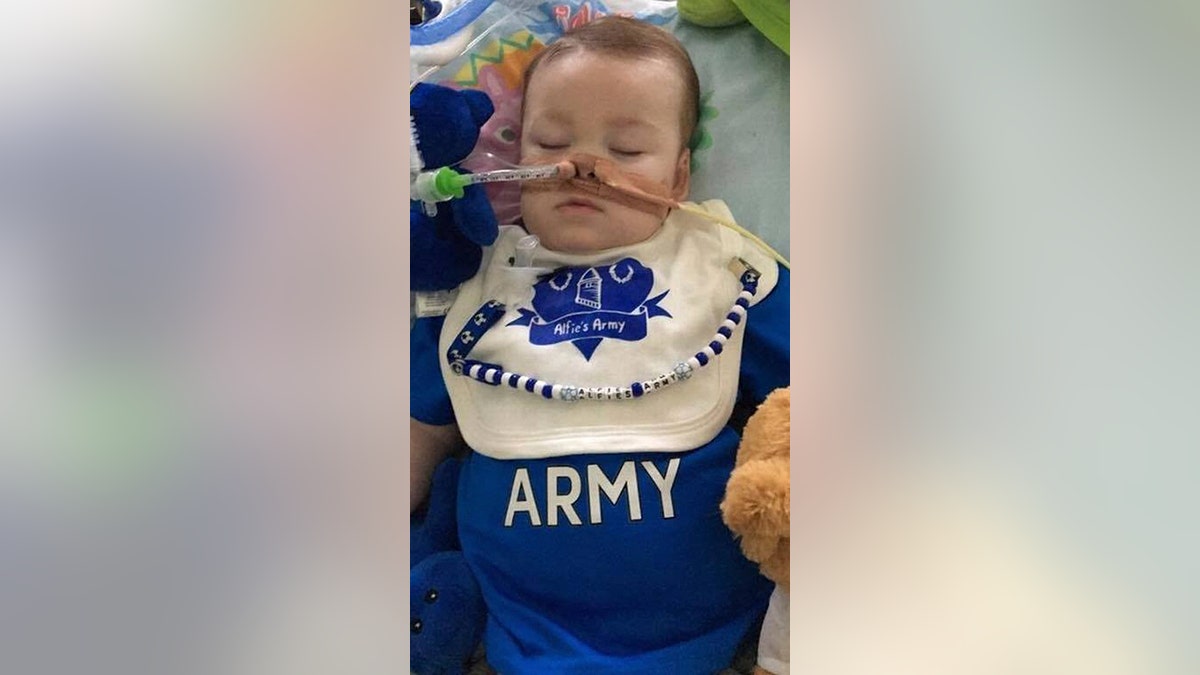
21-month-old Alfie Evans has a mystery degenerative brain condition that has left him in a coma for a year, reports said. (Facebook)
Doctors treating a sick British toddler can shut off the child’s life support despite his parents’ wishes to seek alternative treatment, London’s High Court ruled on Tuesday.
The decision on Alfie Evans’ condition renewed the contentious debate about who should make life-and-death health care decisions for children.
Evans, a 21-month-old child who has been in a coma for a year, is expected to be taken off life support on Friday, the BBC reported. Alfie’s parents, Tom Evans and Kate James, lost a legal battle after Justice Hayden said the child need “peace, quiet and privacy.”
UK DOCTORS CAN TURN LIFE SUPPORT OFF FOR BABY WITH BRAIN DAMAGE DESPITE PARENTS' WISHES, JUDGE RULES
The parents began their case against Alder Hey Children’s Hospital when they said they wanted to take their son to a medical center in Rome for treatment. Alfie suffers from a mystery degenerative brain condition that has left him hospitalized. The parents maintained that the doctors in Rome could give their son a diagnosis and proper treatment.
Doctors at the Liverpool hospital, however, believed it was “unkind, unfair and inhumane” to keep the child alive. The toddler was determined to be in a “semi-vegetative state.”
"Alfie's need now is for good quality palliative care,” the judge said during Tuesday’s ruling.
The Evans family is considering an appeal.
"Unfortunately there are sometimes rare situations such as this where agreement cannot be reached and the treating team believe that continued active treatment is not in a child's best interests,” the hospital said in a statement.
Alfie's father said outside the courthouse: "I'm not giving up, my son isn't giving up. No one -- I repeat, no one -- is taking my boy away from me, and they're not violating his rights or mine."
CHARLIE GARD DIES IN HOSPICE, PARENTS SAY
The case follows at least two more similar sagas that have gripped Britain in recent months.
The parents of 11-month-old Isaiah Haastrup lost their court battle earlier this year to continue his care despite the child having brain damage that doctors categorized as “catastrophic.”
Charlie Gard, who suffered from a rare genetic disorder called mitochondrial depletion syndrome, was embroiled in a heated court battle until his death in late July. Gard’s parents wanted to bring their son to the United States for an experimental treatment they believed could help him.
But the doctors at the Great Ormond Street Hospital argued that the treatment would be ineffective and only cause more suffering.
British courts and the European Court of Human Rights all sided with the hospital in its bid to remove life support and allow Charlie Gard to die naturally.
